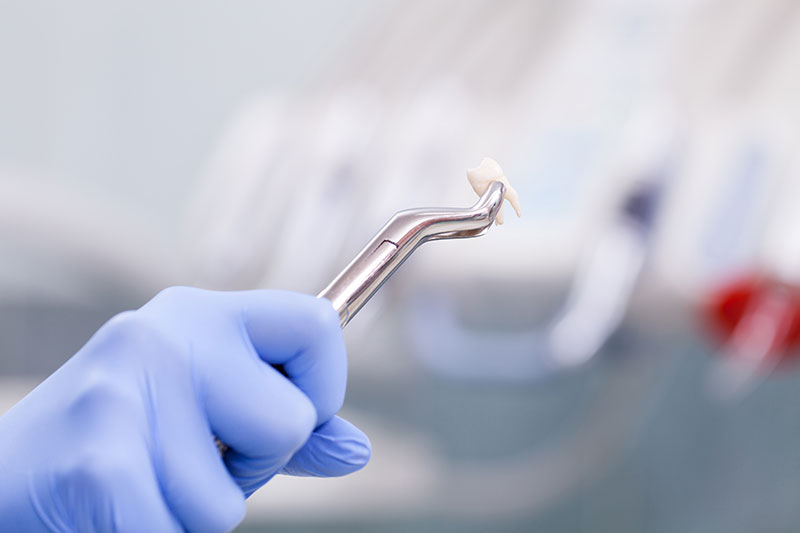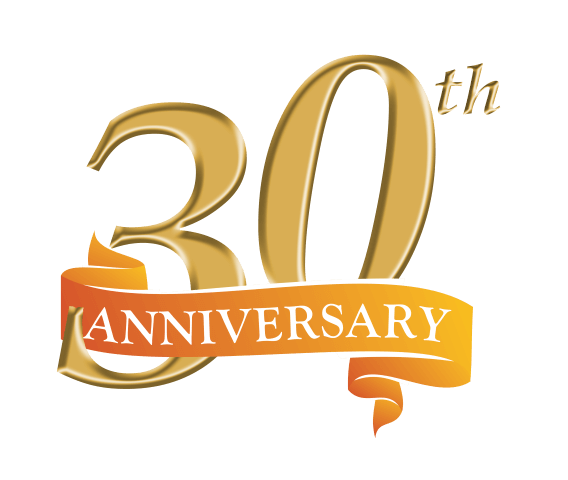Tooth Extraction
Tooth extraction is almost always a treatment of last resort. In some cases, tooth extraction is essential to protect the health of the remaining teeth, especially if there is an infection in the tooth root that cannot be repaired with a root canal. For most people, wisdom tooth extraction is a necessary procedure.
What Is Tooth Extraction Treatment?
Teeth extraction comes in two forms: simple and surgical. A simple extraction involves numbing tooth and gum tissue with a local anesthetic, then loosening the tooth with a dental instrument before removing it with dental forceps. A surgical extraction is more complex, and dentists usually have to use this method of extraction when a tooth has broken off at the gum line or if it has not emerged from the gums yet.
Common Cases When You Need a Tooth Extraction
No dentist chooses to extract a tooth unless it cannot be repaired. Another reason is if it is threatening the health of the remaining teeth.
Emergency Tooth Extraction
An emergency tooth extraction is needed when a tooth must be removed within a 24- to 48-hour period or the patient’s oral health could be at risk. Some examples of emergency tooth extraction include a large break or crack, severe pain or other situations that jeopardize patient health. If a dentist can save a tooth rather than performing an emergency tooth extraction, they will. However, if they cannot, they will remove the tooth and talk about options for tooth replacement.
Wisdom Tooth Extraction
Wisdom teeth are large molars that grow in the very back of the mouth. For most people, wisdom teeth don’t come in until they are teenagers. These large molars present a number of potential problems. They are difficult to reach with a toothbrush and floss. So, they are vulnerable to decay due to lack of good oral hygiene.
Wisdom teeth are large, and there is often not enough room for them in the mouth. If they do emerge from the gums, their size can lead to crowding of the existing teeth in the mouth. This can wreak havoc on patients who have undergone extensive orthodontic work and even those who have not. If they only emerge partially, this can open up the area to infection. Sometimes, the crowding leads to impaction — meaning the teeth never break the surface of the gums. Often, this leads to infection or the formation of cysts, both of which can damage other healthy teeth.
How to Prepare for a Tooth Extraction
Before scheduling your procedure, your dentist will take an x-ray of the tooth to be extracted. At that time, be sure to inform your dentist about any medications and supplements you take. This includes both prescription and over-the-counter drugs. Be sure to inform your dentist of any medical conditions you may have, such as heart disease, diabetes or hypertension.
The day of the tooth extraction, wear comfortable clothing. If you are going to receive IV sedation, do not eat or drink from six to eight hours before your procedure. Avoid smoking before your tooth extraction procedure. If you have a cold or any other illness, be sure to let your dentist know ahead of time as it may be necessary to reschedule the tooth extraction procedure.
What to Expect After a Tooth Extraction
You can expect recovery from your tooth extraction to take a few days. If you have oral sedation or IV sedation, you might feel drowsy immediately after the procedure as the medication wears off. Plan to rest in the hours after the tooth extraction procedure.
Pain After a Tooth Extraction
It is normal to feel pain or discomfort after the tooth extraction. For most people, taking over-the-counter pain relievers is adequate to help reduce pain and swelling. Once a tooth has been pulled, you will probably have gauze in your mouth at the site to help stop any bleeding. Be sure to change the gauze frequently when you are home. You can bite down on the gauze gently but firmly to help stop the bleeding and to encourage the formation of a blood clot. If your pain does not improve within a couple of days or if it gets worse, be sure to call your dentist.
The Healing Process
Swelling during your tooth extraction recovery is normal, and you can apply an ice pack to the affected area to help reduce swelling as you enter the healing process. Try not to spit with the force you normally would for at least 24 hours. Also, avoid smoking or drinking from a straw. The sucking action can disturb the blood clot giving you a painful condition known as dry socket — a painful infection.
Brushing Your Teeth After a Tooth Extraction
You can brush and floss your teeth after a tooth extraction but take care to avoid the extraction site. Keeping your mouth clean is an important part of your tooth extraction aftercare and will promote recovery. Avoid letting the toothbrush touch the extraction site for at least three days to protect the clot that is forming there. If you had stitches at the extraction site, rinse your mouth regularly to help avoid the collection of food particles in the stitches.
Tooth Extraction Recovery & After Care
It’s important to keep your mouth as clean as possible while you are undergoing tooth extraction recovery. Throughout the day of your tooth extraction procedure, rinse your mouth with a salt water solution. If you are a smoker, do not smoke for at least 72 hours after your procedure. Smoking introduces toxins and bacteria into your mouth which can create an infection at the extraction site. The inhalation action of smoking also makes you vulnerable to dry socket.
Foods to Avoid
Stick to soft foods that are easy to chew and less likely to get stuck in the extraction site. Try to choose foods based on maximum nutrition. Good nutrition will give you energy and help your body with the tooth extraction recovery process. Foods such as smoothies, eggs, bone broth, soups, avocado, mashed potatoes, cottage cheese and Greek yogurt can help curb hunger pangs and give your body the nutrition it needs.
Do’s & Don’ts After Tooth Extraction
Whether you had a simple tooth extraction or if you had a surgical tooth extraction, the do’s and don’ts for promoting a quick recovery and minimizing tooth extraction pain are similar. Avoid dislodging the blood clot forming at the site, stick to soft foods, keep your mouth clean and avoid smoking and any kind of sucking motion. Do’s include eating healthy and nutritious foods, getting plenty of rest and using ice packs to treat any kind of swelling.
Signs of Infection After a Tooth Extraction
For most people, within a few days of getting a tooth extraction, bleeding, swelling and pain will subside as the healing continues. If your pain gets worse or if the bleeding continues for more than 24 hours, this could point to an infection. Other signs of infection include a foul odor coming from the mouth or discharge in or around the extraction site.
Bleeding
Bleeding should subside within hours after your tooth extraction. If it continues beyond 24 hours, this could be a sign of infection.
Swelling
Icing the extraction area is important during recovery. If the swelling doesn’t seem to be going down, this could point to an issue with your tooth extraction recovery.
Foul Taste or Odor
You should not experience a foul taste or odor in the days of your tooth extraction aftercare. So, call your dentist if you do.
Discharge
Bleeding in the extraction area is normal. Discharge is not. Any kind of discharge near the extraction site is an ominous sign that infection could be present.
Getting Your Tooth Extraction at West Coast Dental
Here at West Coast Dental, our highly-skilled dentists can advise you on the best course of treatment for tooth extraction to suit your needs. Set up an appointment today.
Team of Board Certified Specialists
Our team of board-certified specialists offers the best in dental care to help you obtain the most appropriate dental treatment and give you the smile you deserve.
Same Day Appointments Available
If you are experiencing a dental emergency, be sure to call and schedule a same-day appointment. We are here for you.
Accept most insurances
At West Coast Dental, we don’t want financial concerns to prevent you from getting the dental care you need. We accept most insurance plans and we have accessible payment options to make getting the dental care you need accessible and affordable.
Dental Discount Program
We offer a dental discount plan to help keep expenses down through the Dental Alliance Discount Plan. We also offer financing options through Dental Alliance Financing and CareCredit to help keep treatment affordable.




